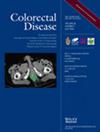The role of adjuvant chemotherapy in rectal cancer: A nationwide cohort study from the Netherlands
Abstract
Aim
Treatment of rectal cancer has improved significantly over the past decades. However, the role of adjuvant chemotherapy remains a matter of debate. The aim of this study is to evaluate the association between adjuvant chemotherapy and overall survival of patients with rectal cancer.
Method
Data from the Netherlands Cancer Registry were used to evaluate all nonmetastatic pathological node-positive patients who underwent treatment for rectal cancer during the time period 2009–2020 in the Netherlands. Patients were grouped according to whether they received adjuvant chemotherapy. Patients were further divided into three groups according to the type of preoperative treatment. Propensity score matching (PSM) was applied based on patient-related variables, tumour-related variables and treatment-related variables. The matching procedure for PSM was done with nearest neighbour and without replacement employing a 1:1 ratio. Kaplan–Meier analysis was performed after PSM to compare overall survival.
Results
A total of 7479 patients were included, of whom 865 (11.6%) underwent adjuvant chemotherapy. After PSM the no neoadjuvant treatment group included 240 patients per study arm, the neoadjuvant radiotherapy group 317 and the neoadjuvant chemoradiation group 182 patients. A significant difference in 5-year survival was found comparing adjuvant versus no adjuvant chemotherapy in all subgroups: no neoadjuvant treatment 54.6% vs. 40.8% (p = 0.003), neoadjuvant radiotherapy 77.0% vs. 53.9% (p < 0.001) and neoadjuvant chemoradiation 68.1% vs. 45.6% (p < 0.001).
Conclusion
Adjuvant chemotherapy was associated with an improved 5-year survival in all subgroups. The role of adjuvant chemotherapy in the treatment of rectal cancer should be reconsidered in node-positive patients.


 求助内容:
求助内容: 应助结果提醒方式:
应助结果提醒方式:


